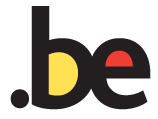Port security assessment
We recently adopted new maritime security legislation that goes beyond IMO regulations. The law provides for an extensive port facility security assessment. Companies will therefore have to assess whether there is a risk that ship-port interfaces are used to facilitate the illegal smuggling of people, wildlife, or goods. When we detect threats during the assessment, the port facility must take the necessary measures to prevent these criminal activities as much as possible.
Declaration against illegal trafficking of drugs
Earlier this year, Belgium and different major container shipping companies signed a declaration to collaborate in the fight against the illegal trafficking of drugs. Authorities can also use this framework to combat the illegal trafficking of other products, such as wildlife trafficking. A public-private partnership will improve the information exchange and the introduction of innovative seals, intelligent containers, and other tracking applications will help protect containers more effectively.
Staff integrity and resilience
Together with the industry, Belgium works on a continued commitment to staff integrity and resilience. This will be done by cooperating in developing, organising, and participating in training courses. This way, they know how to recognise suspicious behaviours or containers and where to report them.


